Very few international journalists are currently based in Yemen because it is simply too dangerous to go there. Local - often freelance - reporters have continued to tell the stories of the human suffering there, however, and are facing greater dangers from militias than ever before. Our writer explains how he had to change the way he did his job, just to survive.
After Syria, Yemen has become one of the most dangerous countries for journalists. Following the 2011 protests and the toppling of President Ali Abdullah Saleh, the Houthi rebels took over the city of Sanaa on 21 September 2014.
Since then, journalists and media have been facing more danger than ever.
Since 1992, 22 journalists have been killed in Yemen according to the Committee to Protect Journalists (CPJ)’s Global Impunity Index of deadliest countries for journalism. Nineteen of those were killed between 2010 and 2017.
The armed rebel Houthi group has tracked down and detained most journalists who oppose them.
Death threats, physical attacks, detention, abduction and kidnapping, as well as restraints on freedom are commonplace. Many local and international TV channels and newspapers were raided. Presently, there are very few, if any, international journalists based in Yemen.
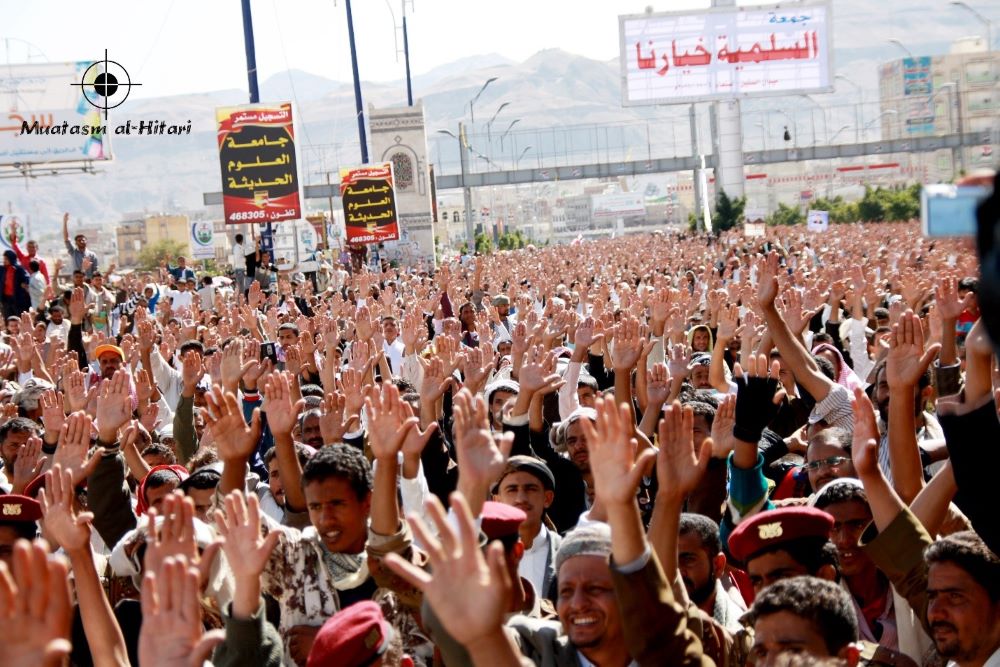
My story is similar to that of many local journalists, whether Yemenis, Syrians or Iraqis. We all share the same profession in war-torn countries.
As a local freelance journalist and cameraman, I have covered the ongoing Yemeni war in Sanaa, Marib, Taiz and al Hudaydah for several media organisations, such as the BBC and Al Jazeera.
The focus of my work has often been on news, especially seen from a humanitarian angle. A report from the Yemeni Journalists Syndicate documented more than 100 attacks on journalists and media organisations during the first half of 2016, for example. Despite persisting challenges, high-risk factors have played a central role and reconfigured the way I do journalism.
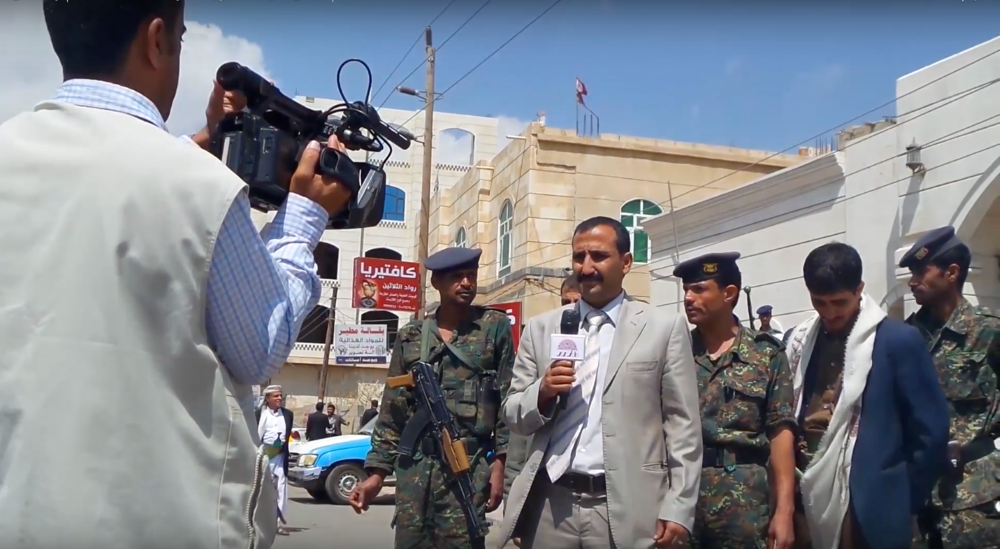
Perhaps one of the most challenging situations has been going from one governorate to another. In order to get access to stories you often must expose yourself to danger. Having to pass through checkpoints constantly gives you a visibility that ultimately threatens your safety in more than one sense. In Yemen, most of the checkpoints have been established by militias and are controlled by them. These armed groups systematically capture journalists that disagree with their ideas as a means to censor dissent.
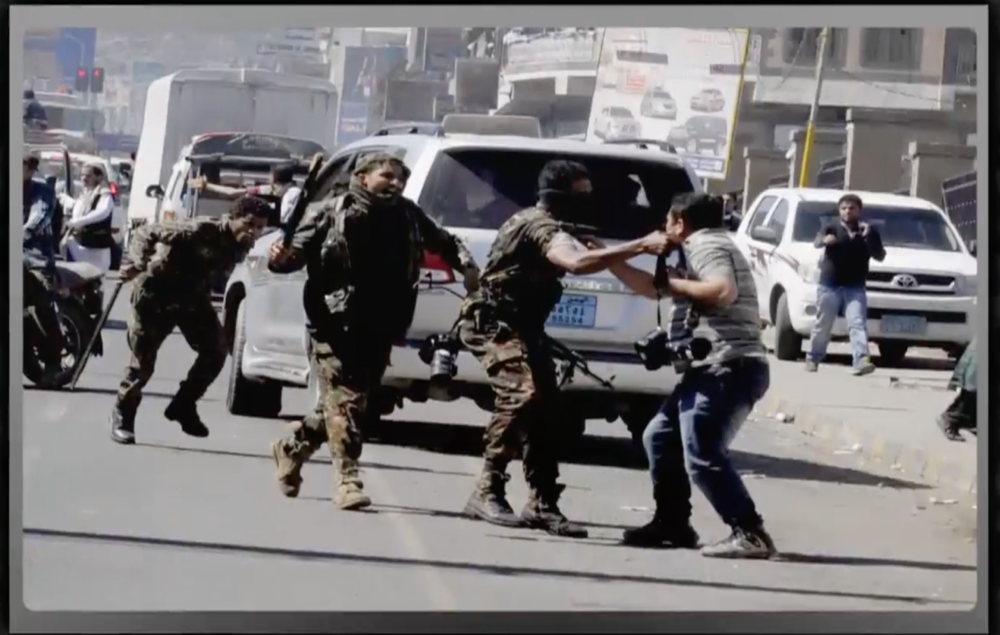
I remember one morning I went to Sanaa to cover the conditions in which people were living, many of them suffering under the demands of the occupation. Before noon, I was walking back home, carrying my equipment with me, when I came across armed men affiliated to the Houthis. They stopped me and started harassing me with questions that overlapped with occasional shouting from some of the men. “What are you filming? Show us the last picture you took! Turn the camera off and do not touch it!” I did all they asked.
At some point, they ordered me to get in a car, saying they would take me to the police station. The relentless hostility continued: “You traitor! You work for Al Jazeera or al Arabiya. You better admit it!”
For Houthis and rebel groups supporting them, working for such media outlets is practically a crime. This is because they cover the Yemen war critically, especially when it concerns the Houthis. They would naturally accuse such channels of being pro-Saudi. I, of course, denied any affiliation with them or having committed any illegal filming. It goes without saying that all my efforts to deter them from holding me were in vain.
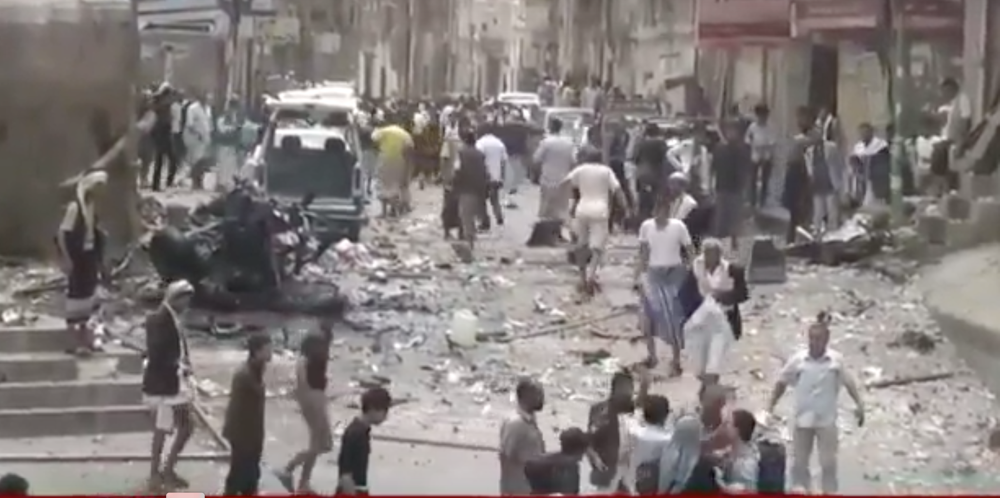
We arrived at the nearest police station where an official from the same group confiscated my equipment and took my press pass. Threats resumed. The issue at hand, I quickly understood, was whether I was a traitor or not. To establish that, they would check my camera for photos and footage, and in their words “have an expert to review them”.
Amidst intimidation tactics and accusations, they finally let me go but kept my equipment. Three days passed by without me being able to recover it or having any news about this alleged reviewing process. Eventually they called and gave me back my camera, saying that I had not done anything wrong as per their discretional criteria.
The truth is that they could not turn the camera on to check my footage because they did not know how to use cameras. I was incredibly lucky, which is not something many journalists languishing in prison can say. Their fate remains unknown.
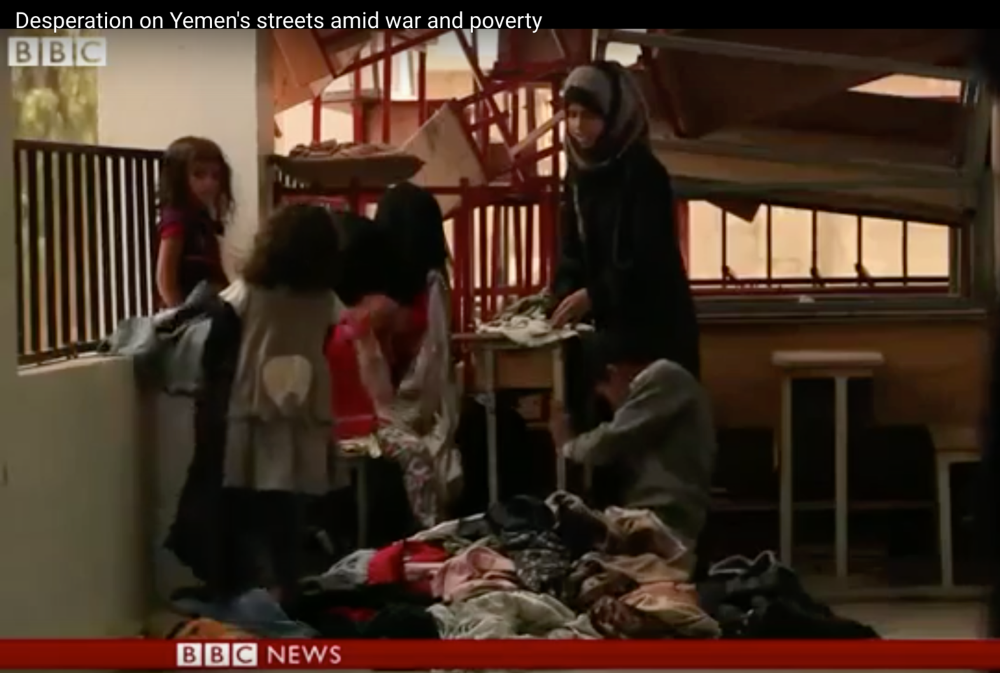
There are too many war stories to tell which reflect the cost of being a journalist in Yemen today.
When the Arab Coalition was shelling the presidential residence where the ousted President Ali Abdullah Saleh was staying in 2015, I went with a group of journalists and photographers to cover the story. The coalition’s operation was still in its early stages. All journalists were allowed into the house after a thorough inspection and the confiscation of their press passes, equipment and mobile phones. We were only left with our cameras and one memory card each.
We covered the event and walked around the ousted president’s residence, which was being targeted. I took all the pictures I needed, but the worry and fear that the bombing would resume never left me.
I started speaking with my colleagues to try to make them aware of the dangers of staying any longer in this place, but it was in vain. I decided to leave with one of my friends. Many journalists and photographers remained inside. A few minutes after we got out, airplanes hovered above us and shelled the palace. Many of my fellow journalists were injured in the aftermath.
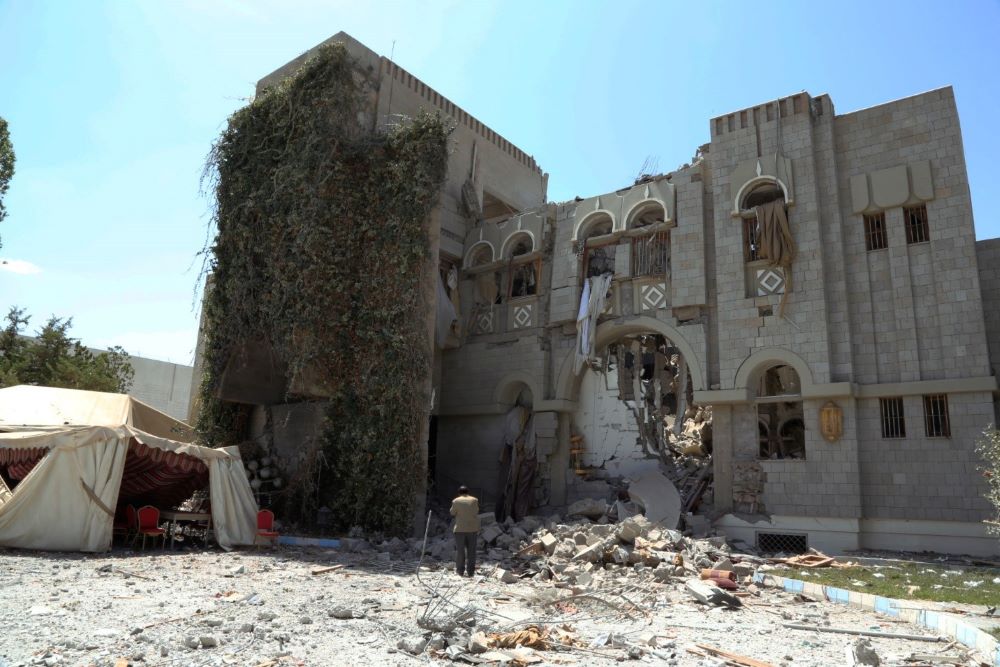
Nobody is safe in war. However, as a journalist, there are actions that you can take to put yourself in a less vulnerable situation. This is especially so when you are a freelance journalist, as you will face more challenges than colleagues who work as full time staff of well-established media outlets.
Freelance journalists lack access to hostile environment training, for example. Usually they do not have the means to buy protective gear, such as bulletproof vests and ballistic helmets, because they cannot afford it. They also lack insurance.
Typically, they cannot rely on any support network, as opposed to journalists who are backed by a media outlet. Some of the consequences of this are, for example, the lack of access to a legal team if detained or arrested and the lack of back-up of a crew if immediate response to a peril situation is needed.
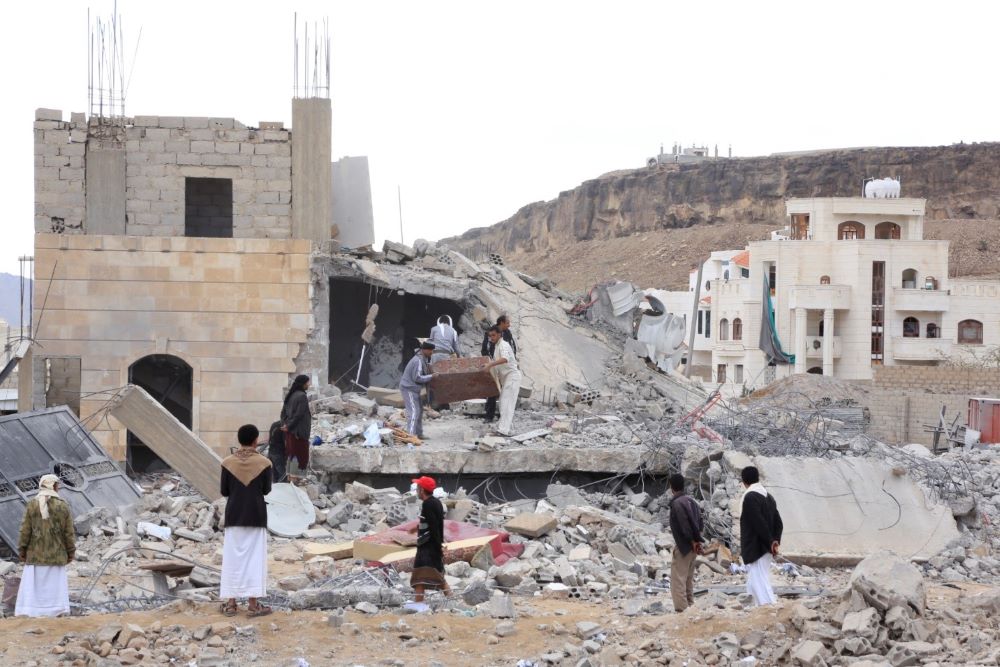
These conditions clearly put freelance journalists at a greater disadvantage when it comes to their safety. But also, they threaten the effective documentation of human rights abuses and war crimes in conflict areas. As happened with Yemen and Syria, there is a point in war zones where the only people capable of telling the world what is happening are local journalists or local media activists, also known as citizen journalists. Many of them work as freelancers. How will the world know if they are being killed and silenced?
Sadly, a common practice of some media networks is to hire local freelance journalists during conflicts only to abandon them right after they have satisfied their information needs.
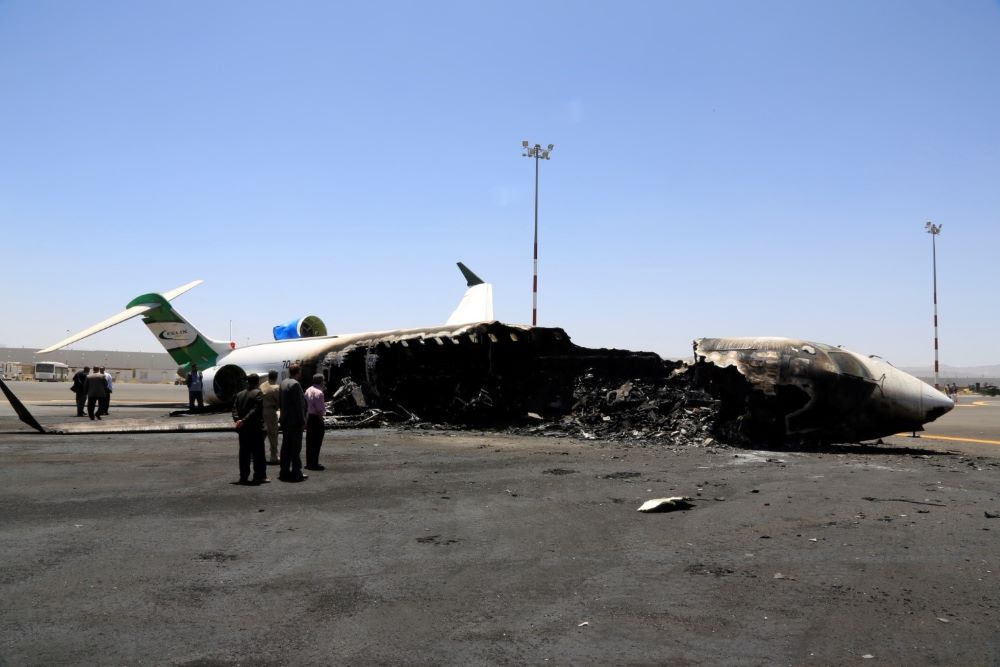
A few years back, I joined a journalist rights advocacy group called Freedom Foundation, an organisation whose mandate is to stop these types of exploitative practices and call on media outlets to effectively protect the rights of freelancers.
One of the main things we did was to document cases of human rights abuses against Yemeni journalists. We used to publish an annual report charting these abuses, hoping this would send a message to the world encouraging it to act. We would also help journalists find lawyers (legal aid), follow up with individual cases, conduct traditional media skills training, and where possible, workshops for journalists to help them develop their safety awareness. Our work started making progress but came to an abrupt end when the Houthi rebels took over Sanaa.

Staying 'safe' as a freelance journalist
As a freelancer, you should take measures to improve your safety conditions while covering conflict. Here are some tips based on my own experience reporting on the Yemeni civil war:
-
Your personal safety is more important than any news or image.
-
When armed groups are in control of a city, always hide your photography equipment.
-
Avoid going to targeted areas and wait at least two hours after the shelling stops before going to cover the event.
-
When hearing airplanes, you must immediately leave and watch what is happening from distance.
-
If the shelling is close to your location, leave the place as fast as possible. Consider that any plane that has just dropped shells cannot do it again immediately. It needs at least 10 minutes before resuming, so this gives you some time to run.
-
If the shelling is happening where you are, do not run. Lie on the ground and take cover.
-
If arrested by an armed group, always surrender and do as they tell you. Try to calm things down.
-
In addition to taking hostile environment training, take first-aid sessions before going to the field.
-
Without exception, wear protective head and chest gear when filming armed clashes.
-
A golden rule is to try to stay away from direct armed confrontations.
An earlier version of this article appeared in the AJMI publication, Journalism in Times of War







































